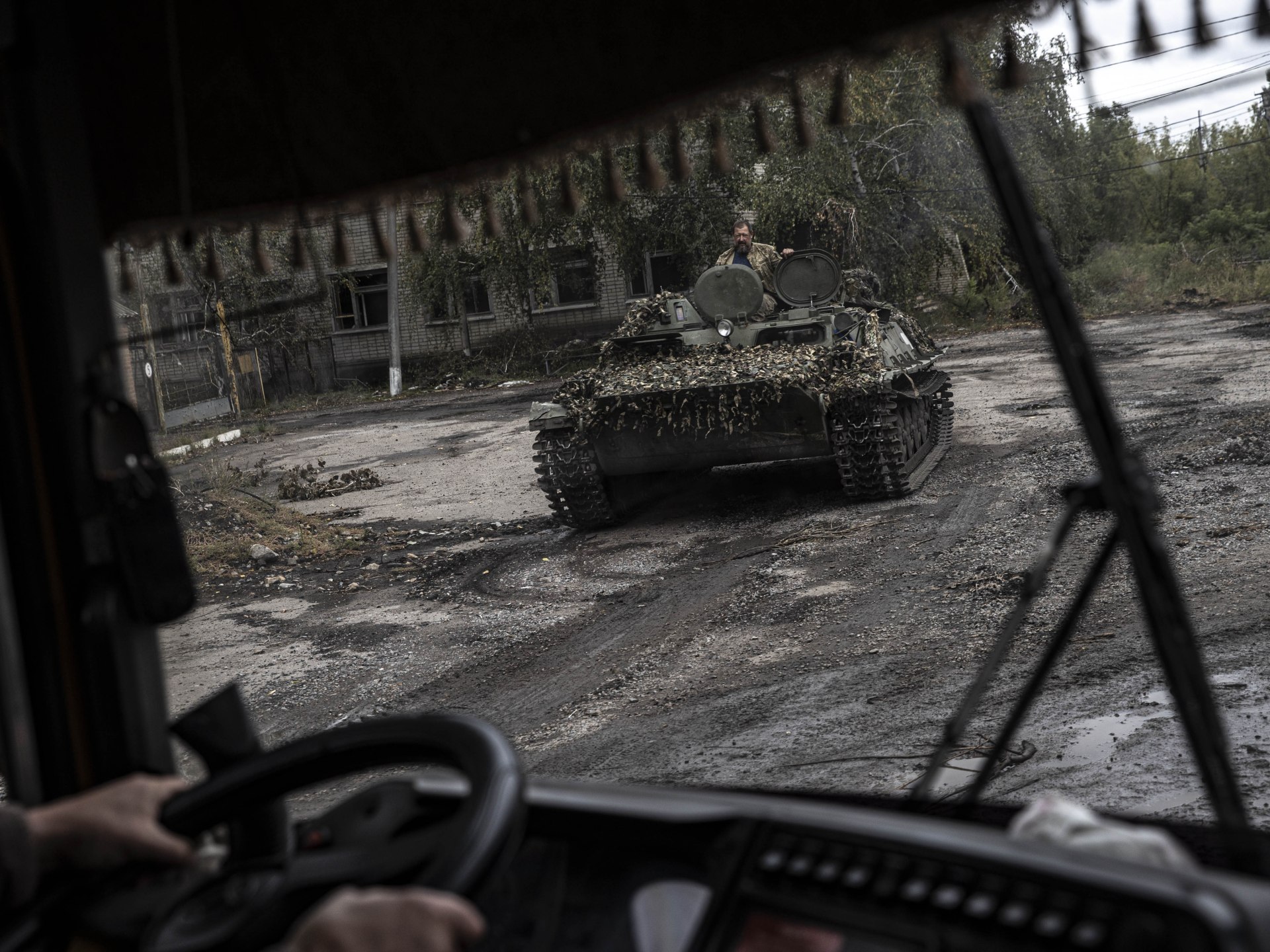Ukraine announced that, thanks to its counterattack, it managed to recover about 4,000 square kilometers of territory in a week, and said for the first time that it had shot down an Iranian-made drone used by Russian forces.
The Ukrainian Defense Ministry stated that it had shot down the Shahed-136 plane in the northeastern Kharkiv region, where Ukrainian forces have launched a counterattack against Russian forces since the beginning of this month.
The ministry published pictures of what appeared to be parts of a destroyed drone, and Reuters news agency said that the tip of the wing matches the tip of the wing of the "Shahed-136".
The ministry said the plane was shot down near Kobyansk, a town in the Kharkiv region that Ukraine has recaptured in recent days.
Ukraine and the United States accuse Iran of providing Russia with drones, but Tehran denies this.
As the Ukrainian attack continued in the northeast of the country, Deputy Defense Minister Hana Maliar announced that Ukraine had regained 3,800 square kilometers of its territory in the Kharkiv region since the sixth of September.
In a televised speech from the town of Balaklya retaken by Ukraine, Maliar said that the liberated territories from Russian forces include more than 300 communities and are currently inhabited by about 150,000 residents.
"The operation is continuing. Its goal is the complete liberation of the Kharkiv region... We believe that this will happen as soon as possible," she added.
Ukrainian President Volodymyr Zelensky said last night that Ukraine in total had "liberated more than 6,000 square kilometers of Ukrainian lands in the south and east" since September 1.
His statement includes territories that Maliar said were returned to her country's sovereignty last week.
war transformations
Since Russia abandoned its main stronghold in northeastern Ukraine on Saturday, in its worst setback since the early days of the war, Ukrainian forces have regained control of dozens of towns in a remarkable turn of the battlefield.
Reuters news agency said that the news of the field defeats sparked an unusual grumble on the screens of the official Russian channels.
In this context, the Kremlin denied today, Tuesday, the existence of discussions about declaring a general mobilization to support military operations in Ukraine.
"At the moment, there is no discussion of this," Kremlin spokesman Dmitry Peskov told reporters, in response to a question about a request by a member of the Russian parliament to declare general mobilization.
Kyiv Security Treaty
Meanwhile, the Ukrainian President's Office published today, Tuesday, a draft of the security guarantees required by his country, under the title "Kyiv Security Treaty" on the presidential website.
The text of this document stated that security guarantees must be certain, and specify the obligations that the group of guarantor states will undertake to Ukraine.
The document states that the guarantor countries could include the United States, Britain, Canada, Poland, Italy, Germany, France, Australia and Turkey, as well as the Nordic countries, the Baltic states, and Central and Eastern Europe.
According to this draft, the signatories to the security guarantees for Ukraine should provide military assistance to Kiev in the event of an attack.
Russian reply
In Russia's first reaction to the Ukrainian draft, Deputy Chairman of the Russian Security Council Dmitry Medvedev said that the draft security guarantees is in fact a "prelude to World War III."
He added that the "damned friends of Western presidents to whom this hysterical appeal is addressed" should understand that it is directly related to a "NATO hybrid war" against Russia.
Medvedev warned that sending "the most dangerous types of weapons to the Kyiv regime without restrictions" would sooner or later lead the military campaign to another level, as he put it.
On the other hand, German Chancellor Olaf Scholz discussed in a telephone conversation with Russian President Vladimir Putin the developments of the conflict in Ukraine.
German government spokesman Steffen Hepstrait said Schulz urged the Russian president to find a diplomatic solution to the conflict in Ukraine based on a ceasefire and the complete withdrawal of Russian forces as soon as possible.
The spokesman added that the German chancellor stressed in the conversation - which lasted 90 minutes - the need to ensure the safety of the Zaporozhye nuclear power plant in Ukraine, and urged Putin to continue to fully implement the grain agreement backed by the United Nations.
Hepstrait said - in a statement - that Schultz stressed that "any further Russian steps to annex areas will not pass without a response, and will not be recognized under any circumstances."

